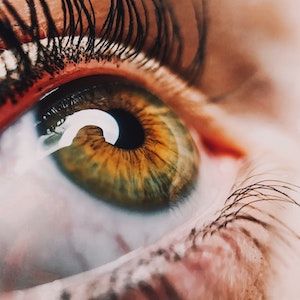Article
Lifestyle Scoring May Benefit Patients with AMD at Risk of Severe Visual Loss
Author(s):
Low lifestyle scores were driven by non-adherence to the Mediterranean diet, with low vegetable and fish intake being most prominent.

A lifestyle scoring form may aid in understanding the lifestyle of patients with age-related macular degeneration (AMD), according to new findings.
From a maximum total lifestyle score of 14 points, 42% of patients in the current study population with AMD (n = 38) had a score of ≤6, with only 2 (6%) scoring a ≥10.
“This lifestyle form provides an easy tool to gain insight about the lifestyle of AMD patients and can help motivate them to improve their daily habits to reduce the impact of their genetic risk,” wrote study author M.A. Meester-Smoor, Department of Ophthalmology, Erasmus MC.
The findings were presented at the Netherlands Ophthalmological Society Annual Congress.
Meester-Smoor and colleagues noted that doctors find it challenging to address lifestyle changes in this patient population, regardless of the current insight into the benefits of a healthy lifestyle, including reducing the risk of progression by half.
As such, they developed an easy to utilize lifestyle scoring form for patients with intermediate or unilateral late AMD who may still be at risk for severe visual loss. The scoring forms they developed were based on risk estimates for lifestyle factors from validated studies.
The included patients received scores for smoking, Mediterranean diet, exercise, and body mass index (BMI). Meanwhile, each healthy outcome was provided 1 point, with the maximum score being 13 points. They then determine tertiles of total genetic risk by genotyping the 52 known common variants, according to the investigators.
Investigators collected this information from the 38 AMD patients with intermediate or unilateral late AMD. They found that low scores were generally a result of non-adherence to the Mediterranean diet, with low vegetable and fish intake being the most prominently observed.
They noted that the majority of patients (56%) had a genetic risk in the highest tertile.
The study, “Lifestyle score for age-related macular degeneration patients to promote change,” was presented at NOG 2022.





